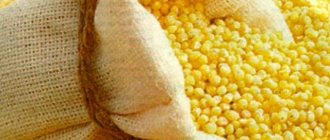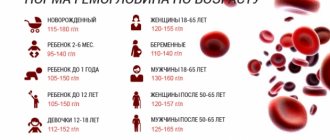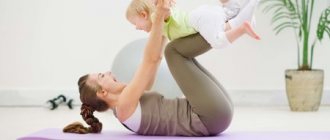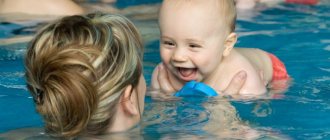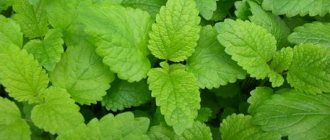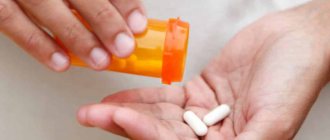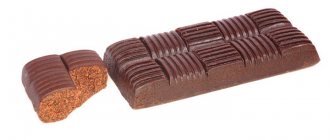When can you take a bath after childbirth?
Gynecologists recommend avoiding bathing until the baby reaches 6-8 weeks of age. It is after this amount of time that the discharge from the genital tract (lochia) will stop. The period during which a woman should refuse to take a bath may differ depending on how the baby was born.
Features of bathing after natural childbirth
Natural childbirth means a normal physiological process, which includes several stages of development: dilatation of the cervix; passage of the baby through the birth canal; passage through the birth canal of the placenta. If it went well, then doctors do not forbid the woman to lie in the bath, but for the first 2 months the basic rules must be followed:
- The water should not be hot. The optimal temperature of the liquid is 36 - 37 degrees.
- It is required that the procedure not be lengthy. You can stay in the bath for no more than 20-30 minutes.
Contraindications to the procedure are the formation of complications after childbirth and the presence of incisions. You should also swim with caution during lactation: it is recommended that the breasts be above the water level.
Changes in room temperature can cause a woman to feel dizzy and even faint. You are allowed to wash only if you feel well.
Features of bathing after caesarean section
A caesarean section is an operation that results in the removal of the baby from the uterine cavity. In this case, the woman’s genital organs are affected superficially, and no tears are formed on the walls of the vagina. The answer to the question of whether you can take a bath after a caesarean section depends only on the condition of the suture. Doctors do not forbid a woman to soak in warm water if the postpartum incision is completely healed and does not bleed.
A young mother after surgery should not assess her health status herself. Only a specialist should decide whether she can bathe after conducting an appropriate examination.
Staying in the sun
Being near a pond, you want not only to swim, but also to sunbathe. However, during lactation, a woman’s hormonal balance is changed relative to normal, which provokes increased sensitivity to ultraviolet radiation. As a result, exposure to the sun leads to the appearance of age spots on the skin and provokes the growth of malignant cells.
You should not completely avoid the sun - the sun's rays are needed to produce vitamin D, which is necessary for the body of mother and baby. A nursing mother is allowed to sunbathe in the morning (until 10-11 am, depending on the climate), as well as after 17:00. During the day, the sun, especially the southern one, will cause more harm than good.
If precautions are taken, a nursing mother can afford a good rest during the warm season on the shores of the sea, lake or river, with swimming and sunbathing during safe hours.
Down with superstitions, unscientific advice, forum horror stories and great-grandmother's tales. It’s not in vain that we live in the 21st century - a time of high enlightenment, technological advancement and evidence-based medicine. Let's approach the issue thoroughly. So, why did our mothers, and the mothers of our mothers, categorically oppose swimming in open water during breastfeeding? Because it was possible to “get a chest cold.”
Well, first of all, there is no such thing. And there is no meaning in this phrase either. There is a scientific term “lactostasis” - stagnation of milk in the ducts of the mammary glands (symptoms: high temperature, unbearable pain in the chest, tightness in the chest, mild constant pain). It has many causes, but none of them are associated with colds and colds.
There is also the term “lactation mastitis” - a disease of the mammary gland that occurs during lactation and is characterized by an inflammatory process (it makes itself felt by fever, severe general malaise, sharp and quite intense pain). Again, the factors that influence the development of the disease have nothing to do with “breast hypothermia.”
Let's return to our topic: is it possible for a nursing mother to swim in reservoirs? We will not take it on faith and ask Maxim Shcherbina
- surgeon, deputy chief physician for surgery at the Dobrobut Medical Center, doctor who has devoted 16 years to the problems of breastfeeding.
Pros and cons of hygiene immediately after childbirth
Experts have conflicting opinions about whether it is possible to take a bath after childbirth. There are several obvious advantages and disadvantages of this hygiene method.
| pros | Minuses |
| effective removal of secretions and clots from the outer walls of the vagina | possibility of infection through the genital tract or an open wound |
| accelerating the healing of hemorrhoids and swelling | in some cases, your health worsens: you feel dizzy, your blood pressure rises. |
| removal of puffiness | |
| improving a woman's well-being | |
| elimination of insomnia | |
| improvement of skin condition |
If a woman in labor decides to relax in this way in the first month after childbirth, then she needs to follow the basic recommendations:
- The bathtub must be thoroughly rinsed and rinsed with hot water. This will reduce the risk of infection to a minimum.
- Before immersing yourself in a liquid, you need to measure its temperature with a water thermometer. You cannot swim if it has exceeded 38, as there is a risk of internal bleeding in the pelvic area.
- If the procedure is performed for the first time, it should be completed after 10 minutes. Gradually this figure can be increased to 15-25 minutes. It is recommended that someone close to you be at home at this time.
By taking a bath correctly, you can avoid negative consequences.
Features of bathing during lactation
When breastfeeding, you can only dive up to your waist, as hot liquid can cause a rush of milk, accompanied by stagnation. You cannot wash if:
- There are cracks and other types of cracks on the nipples. Bacteria can get into the milk through wounds.
- You should not swim in bodies of water with a low level of ecology.
- After water procedures, you should wipe your chest dry and put on clean clothes.
- If there is an excess of milk, you must first feed the baby, only then can you immerse yourself in the liquid.
- The maximum permissible time spent in a pool or pond is 20 minutes. After this you need to warm up.
- It is recommended to wash the body with baby or laundry soap that does not cause an allergic reaction.
On the contrary, it is recommended to take a warm bath during the feeding period if milk production is poor. You can additionally massage your breasts with a warm stream of water, and after a shower, apply a warm towel to it.
Swimming in the sea
To the question whether a nursing mother can swim in the sea, the answer is yes. Sea water heals the body, weakened by pregnancy and childbirth. But we must not forget to take precautions:
- A clean beach and water are one of the main conditions. Debris in the water and on the shore indicates that the water is polluted and there is a high risk of infection entering the body.
- Temperature. You cannot swim in cold water (below 19 degrees) or in excessively warm water (more than 25 degrees) while breastfeeding. In the first case, it is easy to catch a cold, and in the second, the mammary glands overheat, which can lead to the development of inflammation. In addition, pathogenic microorganisms actively multiply in excessively warm water, that is, the risk of catching an infection increases.
- Condition of the nipples. During lactation, cracks in the nipples often form. This is a gateway for infection; in addition, contact of salt water with damaged skin leads to painful sensations.
What recommendations should you follow for using cosmetics?
Bathing in the bath after childbirth should be done with caution. It is strictly forbidden to use fragrances, bubble bath or bath salts. Firstly, they can negatively affect a woman’s well-being. Secondly, if there are gaps, the woman will feel severe pain.
If there is no allergic reaction, then you can add 2-3 drops of essential oil to the liquid. This cosmetic product has a beneficial effect on the skin, providing a rejuvenating and firming effect.
After childbirth, it is recommended to sit in liquid with the addition of folk remedies. This therapy helps cleanse the skin and accelerate wound healing. As folk remedies, you can use a decoction of chamomile, string and sage. By the way, the famous therapist Evgeny Olegovich Komarovsky recommends such baths for newborns.
Young mothers should not forget about the beauty of their hands. Doctors allow almost any water procedures for the upper extremities. An excellent anti-aging remedy is warm potato broth.
Is it possible to swim in a pond, bathhouse, or pool after giving birth?
It is also worth talking separately about several types of water sources, visiting which is also impossible for several weeks after childbirth.
Pool
Why does the swimming pool attract so many women!? The reason is that swimming allows you to have a great time and get your figure in full shape before the vacation or swimming season.
Gynecologists have set a limit for how long you can visit the pool after childbirth. The first training should take place no earlier than 3 months later. It should last no more than 30 minutes and consist of light physical activity. 6 months after the birth of the baby, you can start doing water aerobics.
When feeding, it is strictly forbidden to load the shoulder girdle, so it is better to avoid swimming.
Lactostasis and lactation mastitis - what to do?
Regarding lactation mastitis and lactostasis, which we mentioned at the beginning of the article, the main thing to remember is that if alarming symptoms occur, such as fever, severe chest pain, discomfort when feeding, headache and general weakness, you must immediately contact doctor.
Why is it important? Lactation mastitis occurs in 20% of women who are lactating. Only in 10% of cases the disease develops into an abscess form, which requires surgical treatment. Meanwhile, if you consult a specialist in the first 72 hours, then even with it in most cases it will be possible to do without surgery by using conservative treatment methods.
If you have the slightest suspicion of a lactation disorder, be sure to consult a doctor. In MC “Dobrobut” there is a whole direction that deals with lactation issues. Our clinic has revolutionary approaches to the treatment of lactation mastitis - now even acute mastitis can be treated (or, in extreme cases, operated on) without interruption from feeding.
In general, a young mother needs support, and if lactation is disrupted, she should feel cared for by people close to her. She should rest, be limited from some household chores that exhaust her, and simply enjoy motherhood.
After a long pregnancy and childbirth, every woman strives to get her figure in order as soon as possible. And physical activity and swimming are the fastest way to this. But can a nursing mother go to the pool? In this article we will look at this issue from all sides.
Reservoirs
On a hot summer day, a natural desire arises - to swim in a pond. When can you enjoy cool sea water? It is worth noting that the water in the river, lake and sea is several times dirtier than in a home bath. Therefore, you should not swim in them during pregnancy and lactation.
You can dive into a body of water for the first time 6-8 weeks after labor, provided that:
- the baby is bottle-fed;
- postpartum discharge has stopped;
- the postoperative suture has healed.
Before vacation, it is additionally recommended to visit a gynecologist to make sure that the uterus is fully restored.
Swimming pool while breastfeeding
Visiting the pool is not prohibited during breastfeeding, but young mothers should exercise caution. First of all, this concerns the safety and compliance with hygiene standards of the establishment you are going to visit. Naturally, everything should be at its best. The health and well-being of you and your baby directly depends on this.
You should start visiting the pool no earlier than 3 months after an uncomplicated natural birth. If a caesarean section was performed, this event will have to be postponed for at least 6 months. Be sure to consult your gynecologist about this.
There is scientifically proven evidence that physical fatigue contributes to a decrease in lactation and can even cause unpleasant lactostasis. Therefore, your workouts should be moderate. But if a woman was actively involved in sports before giving birth and during pregnancy, no problems usually arise.
The pace of training should be increased gradually. At first, 20-30 minutes is enough. After a few days, you can slightly increase the time spent by the nursing mother in the pool to 40-45 minutes. Be sure to plan the time you will spend away from home. If the pool is located far away, the training can take 3-4 hours in total. For a three-month-old baby this is a very long time. Therefore, take care of who will be with him during this period and leave a sufficient supply of expressed breast milk. If the child is restless and does not tolerate his mother’s absence well, visiting the pool during breastfeeding will have to be postponed for several months.
Swimming in the pool is contraindicated for a nursing mother if she has problems with her nipples, cracks or damage. Infection easily spreads from water into wounds, which is very dangerous. After swimming, you should definitely take a shower, especially if the water is chlorinated.
Swimming pools are very popular today, which can be visited by mothers with children starting literally from 8-10 months of age. Such activities are very useful for kids. They contribute to their physical development, the formation of motor skills and give a lot of positive emotions.
So, the answer to the question whether a nursing mother can swim in the pool is positive. It's useful and pleasant. But only if you follow all the precautions described above.
A new young mother tries to take perfect care of her baby. Even the most insignificant details in the proper care of a newborn worry her. One of the secondary, but no less significant questions that concerns most breastfeeding women is whether they can swim during lactation. And if possible, then where? Under what conditions?
Most pediatricians unanimously answer this question positively. Nursing mothers are allowed and even recommended to swim, but subject to certain rules.
Reviews from women
“I took a bath after a cesarean section 3 months later. Previously, I wouldn’t have risked doing this because the seams were bothering me.”
“I couldn’t resist and started taking a bath immediately after being discharged from the maternity hospital. At that time, approximately 2-3 weeks had passed since the EU. I didn’t notice any consequences.”
“I lay in the hot bath once and regretted it. After it, my chest and the back of my head hurt a lot. I decided not to tempt fate anymore.”
“For me, a bath has always been a great way to relieve tension and stress. During maternity leave, this really helped me gain strength.”
Experts' opinion
According to reviews from most experts, it is not recommended to take a hot bath until the recovery process is completely completed. After this, it is imperative to visit a gynecologist, and only after the examination he will give recommendations regarding the patient’s lifestyle.
Experts also claim that water procedures are an integral procedure during the discharge of postpartum discharge. It is worth taking a warm shower and washing yourself 2-3 times a day and changing your underwear to reduce the risk of developing infections.
